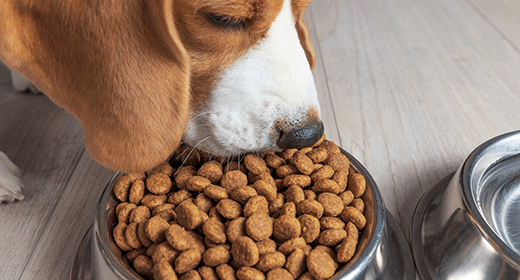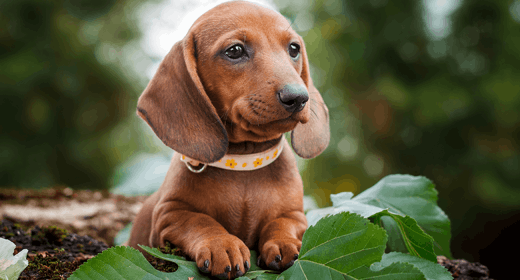

Your puppy’s nutritional needs will change as he grows into adulthood, but how do you know when your puppy is ready for adult food?
Depending on his breed size, at some point between 12 and 24 months of age, you should reexamine your puppy's nutritional needs and choose the right adult formula. His adult food could depend upon his metabolism (Does he gain weight easily?) and his activity level (Is it low, normal, or high?) These factors can help you find the ideal food for your dog.
The transition to a premium adult formula should begin when your dog approaches adult height and weight. The kind of dog you have will determine the right time to switch. When you do switch to adult formula, follow the same four-day process as you did when introducing your puppy to premium puppy food.
Small-breed dogs tend to mature physically much sooner than large-breed dogs. Follow these guidelines to help you decide when to switch formulas:
As your new puppy quickly matures into adulthood, he needs nutrition appropriate for his 'new' body. That means a high-quality, premium adult formula. Most veterinarians agree that feeding a complete and balanced premium food, such as IAMS™ ProActive Health™ Adult MiniChunks, throughout your dog's adulthood can promote a long and healthy life.


Small-breed dogs tend to have higher metabolism rates than their larger counterparts, which means they need a puppy feeding diet specifically designed for them. 'Small-breed dog food formulas are created to give your dog the right balance of nutrients,' says Debra Eldredge, DVM, a veterinarian in upstate New York and coauthor of The Dog Owner's Home Veterinary Handbook (Howell House). Here's what you need to know to feed your small-breed pooch.
The guidelines on the package are a great starting point, Eldredge says, but 'you have to customize [them] for your dog.' For instance, her family has three dogs who all weigh almost the same. But, one is getting twice as much food as the other two, and she's thin. 'She just burns it up,' Eldredge says. Your dog's breed and activity levels will affect how much food she needs.
Small-breed puppies, especially toy breeds, can be prone to hypoglycemia. To keep your dog’s blood sugar levels up, you might have to feed her more frequently and up the calories, Eldredge says.
Small-breed puppies grow quickly, so during the first six months, they need to eat more food and eat more frequently, generally three to four times a day. After six months, feeding two meals a day is usually sufficient. As your dog gets older and less active, her nutritional needs change, and she may need a formula for mature dogs. Her new food will generally have more protein and fewer calories.
Smaller dogs have smaller mouths and teeth, so their food is usually made in a smaller bite size, which is easier for them to chew and swallow.
Don't leave your dog's food out all day. Instead, pick it up after 10 or 20 minutes, Eldredge says. If food is available all day, she may eat out of boredom.
With dog food, your pet is on a balanced diet. Feeding her human food may throw off that balance. The occasional taste of chicken or eggs is okay, but don't make it a daily habit.